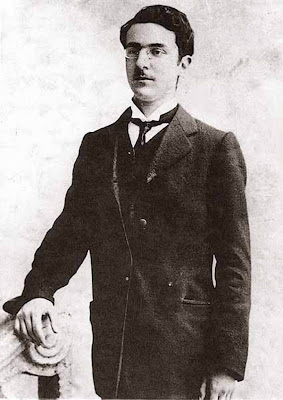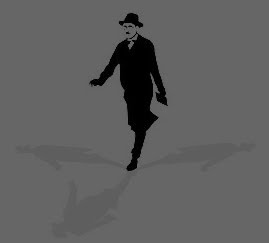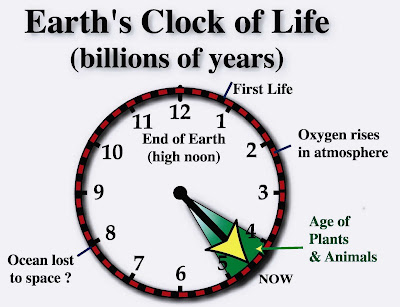We’re sympathetic towards the occult and the secret arts. We are not occultists, however. We weren’t born with the kind of will it takes, let alone the patience to educate and develop such a will into the perfect instrument of a wizard or hypnotist. But we sympathize with occultism, especially since it tends to express itself in ways that many who read and even think they understand it don’t understand a thing. Its arcane attitude is arrogantly superior. It is, in addition, a rich source of mysterious and terrifying sensations: astral larvae, the strange beings with strange bodies evoked in its temples by ritual magic, and the immaterial presences that hover all around our unperceiving senses, in the physical silence of inner sound – all of this comforts us in darkness and distress with the caress of its sticky, horrid hand.
But we don’t sympathize with occultists when they act as apostles and champions of humanity; this strips them of their mystery. The only valid reason for an occultist to operate in the astral realm is for the sake of a higher aesthetic, not for the insidious purpose of doing good to others.
Almost unawares we harbour an ancestral sympathy for black magic, for the forbidden forms of transcendental science, and for the Lords of Power who sold themselves to Condemnation and degenerate Reincarnation. The eyes of our weak, vacillating souls lose themselves – like a bitch in heat – in the theory of inverse degrees, in corrupted rites, and in the sinister curve of the descendent, infernal hierarchy.
Like it or not, Satan exerts an attraction on us like a male on a female. The serpent of Material Intelligence has wound around our heart, as around the symbolic caduceus of the God who communicates: Mercury, lord of Understanding.Those of us who aren’t homosexuals wish we had the courage to be. Our distaste for action can’t help but feminize us. We missed our true calling as housewives and idle chatelaines because of a sexual mix-up in our current incarnation. Although we don’t believe this one bit, to act as though we do smacks of irony’s very blood.
None of this is out of meanness, just weakness. In private we adore the Bad, not because it’s bad, but because it’s stronger and more intense than the Good, and all that is strong and intense is attractive to nerves that should have belonged to a woman. Pecca fortiter can’t apply to us, for we have no force,not even the force of intelligence, which is the only one we could ever claim. To think of sinning forcefully – that’s the most we can do with this severe dictum. But even this is not always possible, for our inner life has its own reality which we sometimes find painful just because it is a reality. The existence of laws governing the association of ideas (along with all other mental operations) is insulting to our inherent lack of discipline.
Fernando Pessoa, The Book of Disquiet, published for the first time 50 years after his death. Pessoa died in 1935.
NATRIUMBIKARBONAT
Plötsligt en ångest…
Åh, vilken ångest, vilken kväljning från mage till själ!
Vilka vänner jag har haft!
Vilken tomhet i alla städer jag har passerat igenom!
Vilken metafysisk dynga alla mina föresatser!En ångest,
en tröstlöshet i själens hud,
armarna hänger vanmäktiga vid krafternas solnedgång…
Jag förnekar.
Jag förnekar allt.
Jag förnekar mer än allt.
Jag förnekar i ord och handling alla gudar
och förnekelsen av dem.
Men vad är det som fattas mig,
som jag känner fattas i mage och blodomlopp?
Vad är det för tom förvirring som tröttar ut min hjärna?Skall jag dricka något eller ta livet av mig?
Nej, jag skall leva vidare. Seså! Jag skall leva vidare.
Le-va vi-da-re…
Le–va–vi–da–re…Gode Gud! Vilken buddism kommer mitt blod att stelna!
Att avstå från vidöppna dörrar,
inför ett landskap alla landskap
utan hopp i frihet
utan samband,
en tillfällighet i tingens ytas inkonsekvens,
monoton men sömndrucken,
och vilka vindar när dörrar och fönster slås upp på vid gavel!
Vilken angenäm sommar, de andras!Ge mig något att dricka, för jag är inte törstig!
Fernando Pessoa (under heteronymen Álvaro de Campos), 1930


















